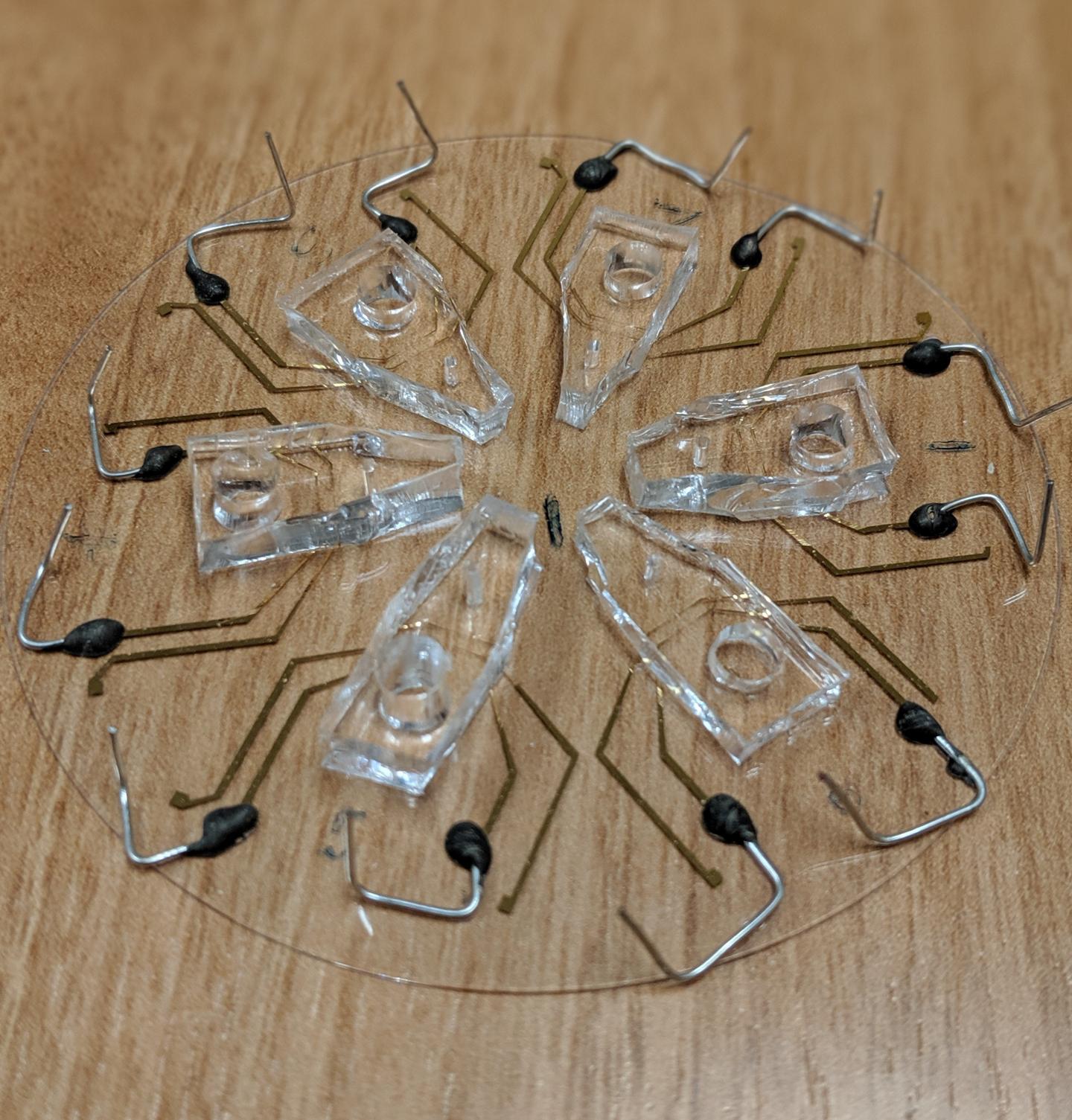Artificial intelligence and biosensors can rapidly detect if live cancer cells remain after treatment

Credit: Zhongtian Lin
Rutgers researchers have created a device that can determine whether targeted chemotherapy drugs are working on individual cancer patients.
The portable device, which uses artificial intelligence and biosensors, is up to 95.9 percent accurate in counting live cancer cells when they pass through electrodes, according to a study in the journal Microsystems & Nanoengineering.
“We built a portable platform that can predict whether patients will respond positively to targeted cancer therapy,” said senior author Mehdi Javanmard, an assistant professor in the Department of Electrical and Computer Engineering in the School of Engineering at Rutgers University-New Brunswick. “Our technology combines artificial intelligence and sophisticated biosensors that handle tiny amounts of fluids to see if cancer cells are sensitive or resistant to chemotherapy drugs.”
The device provides immediate results and will allow for more personalized interventions for patients as well as better management and detection of the disease. It can rapidly analyze cells without having to stain them, allowing for further molecular analysis and instantaneous results. Current devices rely on staining, limiting the characterization of cells.
“We envision using this new device as a point-of-care diagnostic tool for assessing patient response and personalization of therapeutics,” the study says.
Treatment of cancer patients often requires drugs that can kill tumor cells, but chemotherapy destroys both tumor cells and healthy cells, causing side effects such as hair loss and gastrointestinal problems.
Co-author Joseph R. Bertino, a resident researcher at Rutgers Cancer Institute of New Jersey and professor at Rutgers Robert Wood Johnson Medical School, and his team previously developed a therapeutic approach that targets cancer cells, such as those in B-cell lymphoma, multiple myeloma and epithelial carcinomas. It binds a chemotherapy drug to an antibody so only tumor cells are targeted, and minimizes interaction with healthy cells. Patients will respond positively to this therapy if their tumor cells generate a protein called matriptase. Many patients will benefit while the side effects from standard chemotherapy are minimized.
“Novel technologies like this can really have a positive impact on the standard-of-care and result in cost-savings for both healthcare providers and patients,” Bertino said.
The Rutgers team tested their new device using cancer cell samples treated with different concentrations of a targeted anticancer drug. The device detects whether a cell is alive based on the shift in its electrical properties as it passes through a tiny fluidic hole. The next step is to perform tests on tumor samples from patients. The researchers hope the device will eventually be used to test cancer therapies on samples of patient tumors before treatment is administered.
###
The lead author was Karan Ahuja, who earned a master’s degree at Rutgers. Co-authors include Gulam M. Rather, a postdoc at Rutgers Cancer Institute of New Jersey, and engineering doctoral students Zhongtian Lin, Jianye Sui, Pengfei Xie and Tuan Le.
Media Contact
Todd Bates
[email protected]
Original Source
https:/
Related Journal Article
http://dx.



